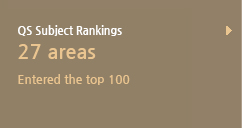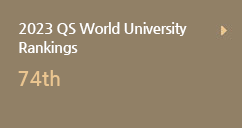OJERI holds Solve Climate 2030 webinar
In search of solutions to climate change
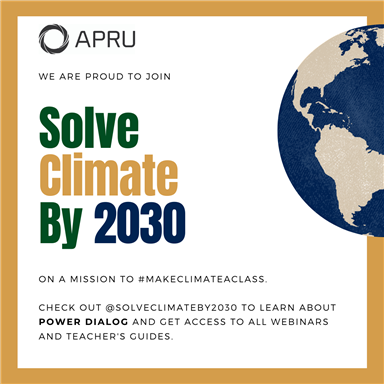
On April 9, Korea University’s OJEong Resilience Institute (OJERI) OJERI@KU) held a webinar (online seminar) on the theme of “Searching for Solutions to Climate Change” to explore solutions to climate change, which is recognized as a significant threat to the sustainable development of humanity.
Sponsored by the Association of Pacific Rim Universities (APRU), the webinar is part of a campaign called Solve Climate 2030, organized for 100 universities around the world. The aim of the webinar was to raise awareness of climate change among not only college students, but also high school students and the general public, and to present solutions for local communities.
The panelists were Lee Woo-kyun, professor of the Division of Environmental Science & Ecological Engineering and director of OJERI; Kim So-hee, secretary general of the Climate Change Center; and Kang Dong-ryul, network coordinator of the Sustainable Development Solutions Network (SDSN) Youth Korea. The role of moderator was filled by Chon Jin-hyung, professor of the Division of Environmental Science & Ecological Engineering.

The panelists gave presentations on: the role of science for spatio-temporal climate solutions (Professor Lee Woo-kyun), the role of civil society for communication on the climate crisis with the MZ generation (Secretary General Kim So-hee), and role of future generations in the age of climate crisis (Network Coordinator Kang Dong-ryul).
Lee Woo-kyun, director of OJERI, discussed the role of the scientific community regarding nature-based solutions in his presentation titled “The Role of Science in Spatio-Temporal Climate Solutions.” He criticized the lack of connection between individual space-time and climate change, despite global change being a global issue, and emphasized that individuals (citizens) should be given “information pertaining to the here and now.”
According to Lee Woo-kyun, scientific solutions to climate change lie in the development of spatio-temporal indicators based on vulnerability assessments so as to provide climate information closely related to everyday lives. Unlike the word “sensitivity,” “vulnerability” presumes that “solutions” exist. As such, greater attention should be paid to “vulnerability” in order to actively overcome the climate crisis. The director explained that spatio-temporal indicators will improve upon existing weaknesses by providing the specific data essential for regional vulnerability assessment.
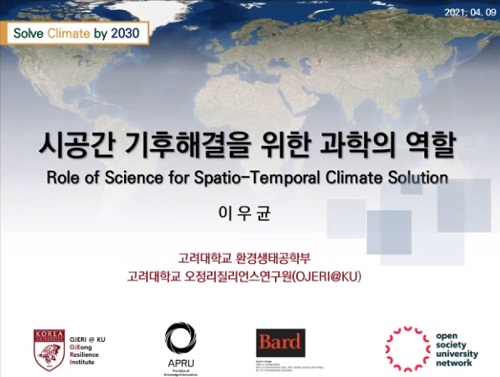
Quoting the phrase “the secularization of science” from Kim Yong-jun’s Historical Perception of Scientists, Lee Woo-kyun said, “Science cannot play its role if it is shunned by the public, or if it colludes with authority. It should empathize with society, draw interest from industries, and maintain political governance. I hope for science to be built on social consensus and communication.”
Secretary General Kim So-hee of the Climate Change Center, who spoke on the topic of the “Role of Civil Society for Communication on Climate Crisis with the MZ Generation,” stressed the need for future generations to be aware of and respond to the climate crisis.
Kim So-hee focused on the MZ generation because millennials and Generation Z will be the main consumers over the next 15 years, and are expected to influence society based on values such as fairness, mutual growth, and environmental necessity. As key agents living in the age of the climate crisis, the MZ generation must become directly involved and actively make changes both online and offline.
The four solutions proposed by the Climate Change Center were: ▲ sharing knowledge on climate and environment in a language familiar to the MZ generation, ▲ enhancing the MZ generation’s capacity for climate change response through immersive education, ▲ guaranteeing the MZ generation’s right to speak as young green leaders, and ▲ establishing a stage for the MZ generation to take action.
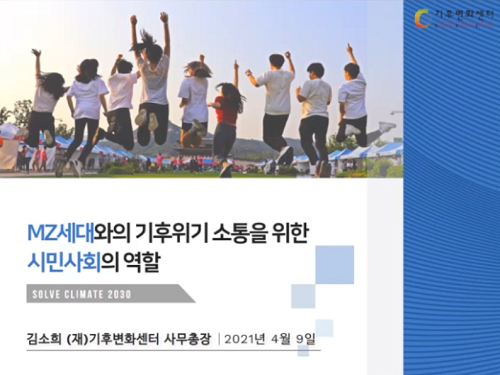
Kim So-hee said that “the MZ generation must show interest in climate change issues” similar to how the Climate Change Center is exerting efforts to understand their perception of climate change. In this context, the MZ generation should also “vote for politicians with an interest in climate change.” She concluded her presentation by saying that “knowledge is power, and opportunities to get involved will come to those who are knowledgeable. “
Network Coordinator Kang Dong-ryul of SDSN Youth Korea introduced the network’s activities under the theme of the “Role of Future Generations in the Age of Climate Crisis,” so as to give younger generations an idea of how to overcome the climate crisis. SDSN Youth announced the world’s first Youth Sustainable Development Goals (Y-SDGs), which were developed by 87 youth representatives from 37 universities nationwide in the hopes of achieving sustainable growth in a new climate system.
Kang Dong-ryul pointed out that while many government agencies gathered to discuss the establishment of Korea National Sustainable Development Goals (K-SDGs) in light of the UN’s Sustainable Development Goals (SDGs), the voices of younger generations were not reflected. SDSN Youth Korea organized a youth forum on SDGs for 47 youth groups to exchange opinions on climate change and sustainable development, and compiled the 2030 Sustainable Seoul Report based on their discussions on environment, society, and human rights. The report revealed the future generation’s perception of Seoul and their expectations for the future. Y-SDGs Korea, which contains practical actions that can be implemented in daily life by youth, was officially announced in November 2020.

Mentioning the trials and errors experienced by the network, Kang Dong-ryul said, “Regardless of the end result, and regardless of how youth involvement is too often tokenistic, we must continue to passionately voice our opinions.” In the Q&A session, he continued, “The world must gradually change. Young people should adopt a long-term perspective, and head forward with like-minded activists to achieve their goals.”
Chon Jin-hyung, professor of the Division of Environmental Science & Ecological Engineering and moderator, said, “The Earth’s climate change must be recognized as a crisis faced by humanity. It cannot be overcome solely based on the emergence of certain technologies or companies, but requires the active participation of both experts and the general public. I hope for this webinar to drive positive change.”
A recording of the webinar can be viewed on the YouTube channel “Solve Climate by 2030.”


